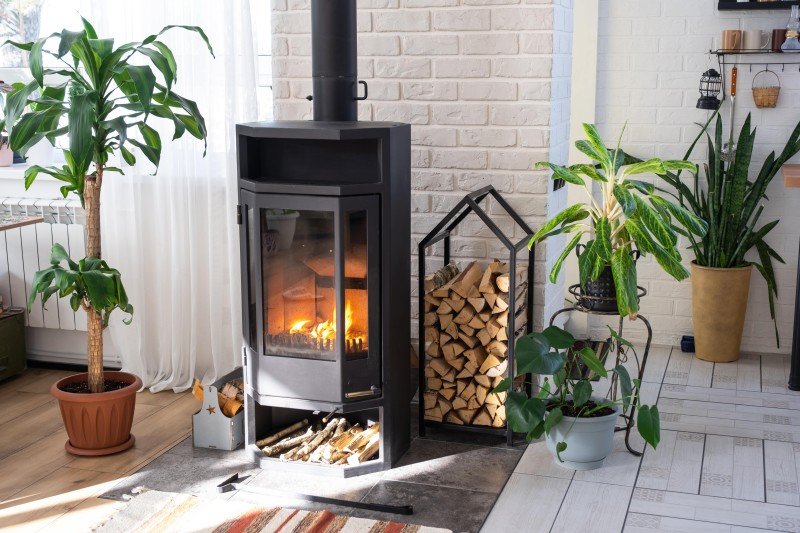The Best Fireplaces: A Comprehensive Guide for Homeowners
Fireplaces have long been a cherished feature in homes, providing both heat and a welcoming atmosphere. They can be found in numerous styles, sizes, and fuel types, permitting house owners to select one that fits their personal aesthetic and heating requirements. This article digs into the very best fireplaces, highlighting essential functions and factors to consider to help you make a notified choice.
Types of Fireplaces
Comprehending the different kinds of fireplaces is vital in selecting the very best option for your home. Below are the most commonly used fireplaces:
Wood-Burning Fireplaces
- Advantages: Traditional appeal, natural ambiance, and reliable heating.
- Drawbacks: Requires routine upkeep, ash disposal, and is subject to local regulations concerning emissions.
Gas Fireplaces
- Advantages: Convenient, clean-burning, and easy to operate.
- Drawbacks: Requires a gas line, can be more expensive to set up initially.
Electric Fireplaces
- Advantages: Easy installation, low maintenance, and the best option for homes with kids or pets.
- Downsides: Lack the genuine feel of wood or gas flames, may not heat up large areas efficiently.
Pellet Stoves
- Benefits: Eco-friendly, effective, and offer a steady heat output.
- Disadvantages: Requires electrical energy to operate, and pellet supply can be limited in some areas.
Ethanol Fireplaces
- Benefits: No chimney needed, portable, and eco-friendly.
- Disadvantages: Generally less efficient for heating.
A Comparison of Fireplace Types
| Type | Installation Cost | Running Cost | Heat Output | Maintenance | Environmental Impact |
|---|---|---|---|---|---|
| Wood-Burning | ₤ ₤ | ₤ | High | High | Moderate |
| Gas | ₤ ₤ ₤ | ₤ ₤ | Medium-High | Low | Moderate |
| Electric | ₤ | ₤ ₤ | Low | Extremely Low | Low |
| Pellet | ₤ ₤ | ₤ | Medium | Medium | Low |
| Ethanol | ₤ ₤ | ₤ ₤ ₤ | Low | Extremely Low | Really Low |
Leading Considerations When Choosing a Fireplace
When you're in the marketplace for a new fireplace, keep the list below aspects in mind to guarantee you select the best one for your home:
- Purpose and Functionality: What do you want your fireplace to do? Is it for heating or visual appeals? This will guide your choice considerably.
- Space Availability: Measure the location where you wish to set up the fireplace. Guarantee the picked type fits without overwhelming the area.
- Fuel Source: Assess the accessibility and expense of numerous fuel sources in your location to avoid unanticipated expenditures.
- Setup Complexity: Some fireplaces may require significant changes to your existing home structure.
- Structure Codes and Regulations: Be mindful of regional laws relating to ventilation, safety, and emissions, as these can affect your fireplace choice.
- Aesthetic Appeal: The design and style of a fireplace can work as a centerpiece or enhance the existing decor, so select one that enhances your home's total aesthetic.
Advantages of a Fireplace
Adding a fireplace to your home manages many benefits:
- Enhanced Aesthetic Appeal: A fireplace can elevate the design of any space, producing a cozy and welcoming environment.
- Increased Home Value: A well-installed fireplace can include considerable worth to your home, making it attracting potential purchasers.
- Energy Efficiency: Modern fireplaces, specifically gas and pellet stoves, can provide effective heating while minimizing energy costs.
- Emergency Situation Heat Source: In cases of power blackouts, a wood or gas fireplace can function as a reliable heat source.
- Celebration Space: Fireplaces frequently become the centerpiece for events, promoting heat and comfort throughout household or friends' get-togethers.
Regularly Asked Questions (FAQs)
Q: How much does it cost to install a fireplace?A: Installation costs can vary substantially based on the type of fireplace, structural requirements, and labor costs. Fundamental electric fireplaces might cost around ₤ 300, while custom-made wood or gas fireplaces can run from ₤ 3,000 to upwards of ₤ 10,000. Q: Are electric fireplaces safe?A: Yes, electric
fireplaces are typically safe.
They do not release carbon monoxide and have no open flames. They typically include security functions like automated shut-off systems. Q: How frequently ought to I have my chimney cleaned?A: If you utilize a wood-burning fireplace, it's suggested to have your chimney cleaned a minimum of as soon as a year
to avoid creosote accumulation, which can lead to chimney fires. Q: Can I install a gas fireplace myself?A: It's not advisable to set up a gas fireplace without expert support due to the complexities associated with gas
lines, ventilation, and safety guidelines. Q: What are the best kinds of fuel for wood-burning fireplaces?A: The best fuel alternatives consist of well-seasoned woods like oak, maple, or hickory, as they burn hotter and cleaner compared to softwoods. Selecting the best fireplace for your home
includes considering many elements, from visual appeals to operate and safety. Fireplaces Near Me of fireplace has its unique advantages and potential downsides.
Comprehending these aspects, together with your personal heating requirements and budget constraints, will direct you in making an informed decision. Eventually, a fireplace can offer not only heat however also an abundant ambiance, changing your home into an inviting sanctuary.

